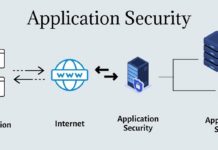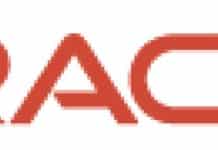The GSMA today announces a new industry-wide initiative called GSMA Open Gateway, a framework of universal network Application Programmable Interfaces (APIs), designed to provide universal access to operator networks for developers. Launched with the support of 21 mobile network operators, the move represents a paradigm shift in the way the telecoms industry designs and delivers services in an API economy world.
GSMA Open Gateway has already started to harmonise the industry around open APIs, with many demonstrations available to see at MWC Barcelona 2023. These include an immersive concert experience from Axiata, using APIs for Device Location, Carrier Billing and Authentication; a live ‘jam session’ from the 5G Future Forum with musicians around the world, supported by the Edge Site Selection API; and an immersive gaming, and high definition video showcase, from Orange, Telefonica, Vodafone and Ericsson/Vonage based on the Quality on Demand (QoD) API.

GSMA Open Gateway APIs are defined, developed and published in CAMARA, the open source project for developers to access enhanced network capabilities, driven by the Linux Foundation in collaboration with the GSMA. Working in CAMARA, APIs between telcos and developers can be delivered quickly, using developer-friendly tools and software code.
Jose Maria Alvarez-Pallete Lopez, GSMA Board Chairman and Chairman & CEO of Telefonica, said: “GSMA Open Gateway will enable single points of access to ultra-broadband networks and provide a catalyst for immersive technologies and Web3 – giving them the ability to fulfill their potential and reach critical mass. Telcos have come a long way in developing a global platform to connect everyone and everything. And now, by federating open network APIs and applying the roaming concept of interoperability, mobile operators and cloud services will be truly integrated to enable a new world of opportunity. Collaboration amongst telecom operators and cloud providers is crucial in this new digital ecosystem.”
“By applying the concept of interconnection for operators to the API economy developers can utilise technology once, for services such as identity, cybersecurity or billing, but with the potential to be integrated with every operator worldwide. This is a profound change in the way we design and deliver services,” said Mats Granryd, Director General of GSMA. “In 1987, representatives from 13 countries worked together to harmonise mobile voice services and enable roaming, and I believe that 35 years on, GSMA Open Gateway has the potential to deliver a similar impact for digital services.”
GSMA Open Gateway will help developers and cloud providers enhance and deploy services more quickly via single points of access to operator networks. This is achieved via common, northbound service APIs that simply expose mobile operators’ network capabilities within a consistent, interoperable and federated framework.
Ishwar Parulkar, Chief Technologist for the Telco Industry at Amazon Web Services (AWS), said: “GSMA Open Gateway is a significant step in enriching the cloud developer experience. Developers using AWS’s more than 200 services will also be able to leverage APIs from telco operators. This allows the developer community to create new applications, and for telcos to open up new models of consumption and monetisation for their networks. We believe this will help accelerate innovation in the telecom industry.”
Erik Ekudden, CTO & SVP, Ericsson, said: “Together with Vonage, we enable operators to take their advanced mobile network capabilities to developers via easy-to-use APIs. The QoD API that we are demonstrating at MWC Barcelona 2023 – live on the networks of Orange, Telefonica and Vodafone – shows how GSMA Open Gateway APIs are highly scalable across operators and with different app developers. This places 5G as an innovation platform at the heart of digital transformation and we are excited to be part of the GSMA Open Gateway initiative.”
“At Microsoft, we are focused on extending a distributed computing fabric from the cloud to the edge, together with our operator partners,” said Satya Nadella, Chairman and CEO, Microsoft. “We look forward to bringing the GSMA Open Gateway initiative to Microsoft Azure, to empower developers and help operators monetise the value of their 5G investments.”
The GSMA Open Gateway initiative launches with eight universal network APIs, including SIM Swap, QoD, Device Status (Connected or Roaming Status), Number Verify, Edge Site Selection and Routing, Number Verification (SMS 2FA), Carrier Billing – Check Out and Device Location (Verify Location). The initiative plans to launch further APIs throughout 2023.
Examples of services supported by the introduction of GSMA Open Gateway include Edge Site Selection and Routing to support autonomous vehicles and Verify Location for fleet management and incident reporting; SIM Swap to combat financial crime and QoD for drones, robotics, eXtended Reality (XR) and immersive online gaming.
The GSMA Open Gateway demonstrations available to see at MWC Barcelona 2023 include:
- At the GSMA Pavilion, Axiata is showcasing its first ever immersive music concert on the Axiata Digital Concert Platform, powered by Dialog and Axiata Digital Labs’ Axonect, designed in association with GSMA Open Gateway APIs for Number Verification (SMS 2FA), Device Location and Carrier Billing.
- At MWC’s startup showcase, 4YFN, Deutsche Telekom (DT) will announce details of its developer marketplaces and Early Adopter Programmes for CAMARA APIs in association with GSMA Open Gateway. In addition, DT will be demonstrating applications of APIs, including QoD, alongside Matsuko and Orange in Hall 3 on stand 3M31.
- The 5G Future Forum (5GFF) will take collaboration to the next level across three operator networks – Rogers, Verizon and Vodafone. Musicians from around the world will jam over 5G, using Mobile Edge Compute (MEC) and the GSMA Open Gateway’s Edge Site Selection API. See the show on Wednesday, 1st March at 12pm in Theatre 1, Hall 6.
- At the GSMA Pavilion, KDDI, Telefonica, Mawari and Sturfee will showcase a revolution in online shopping with the 5G MEC powered XR Digital Twin Store. This allows shoppers in a physical store, and online shoppers in its Digital Twin, to share an immersive retail experience together. This project will explore opportunities based on the GSMA Open Gateway QoD API.
- On stand 4A60 in Hall 4, KT will be showing a demonstration of B2B use cases – built on the GSMA Open Gateway APIs for Edge Site Selection and Routing – with MEC. Titled ‘5G Connectivity & Cloud Federation’ this demonstration enables enterprise customers to receive the best service experience anywhere in the world by discovering optimal edge resources.
- Orange, Telefonica, Vodafone, Vonage and Ericsson are showing how user experience in mobile cloud gaming – and interactive high definition video applications – can be significantly enhanced by leveraging advanced network functionality through global network APIs. Application developers from Blacknut, Zoom and Vonage utilised the GSMA Open Gateway QoD API to add innovative features and enhance the mobile experience.
- Singtel, AIS, Summit Tech and Bridge Alliance will be showing their live broadcast demonstration at the GSMA Pavilion, leveraging 5G and MEC to provide a hyper-personalised view in 8K resolution. Participants are able to interact in real-time within live events across different country networks.
Demonstrations at Telefonica’s booth will show GSMA Open Gateway API availability in Telefonica Kernel, in collaboration with Microsoft. Microsoft will also be announced as a partner in Telefonica’s Early Adopter Programme for developers and experience creators, which also features AWS, Google and Vonage.
Signatories to the GSMA Open Gateway Memorandum of Understanding are America Movil, AT&T, Axiata, Bharti Airtel, China Mobile, Deutsche Telekom, e& Group, KDDI, KT, Liberty Global, MTN, Orange, Singtel, Swisscom, STC, Telefonica, Telenor, Telstra, TIM, Verizon and Vodafone.
Over the next 12 months the initiative will support engagement via Early Adopter Programmes for developers and it will promote GSMA Open Gateway APIs via significant developer channels, including Microsoft events such as Ignite and Build; and AWS’ re:Invent.












































































